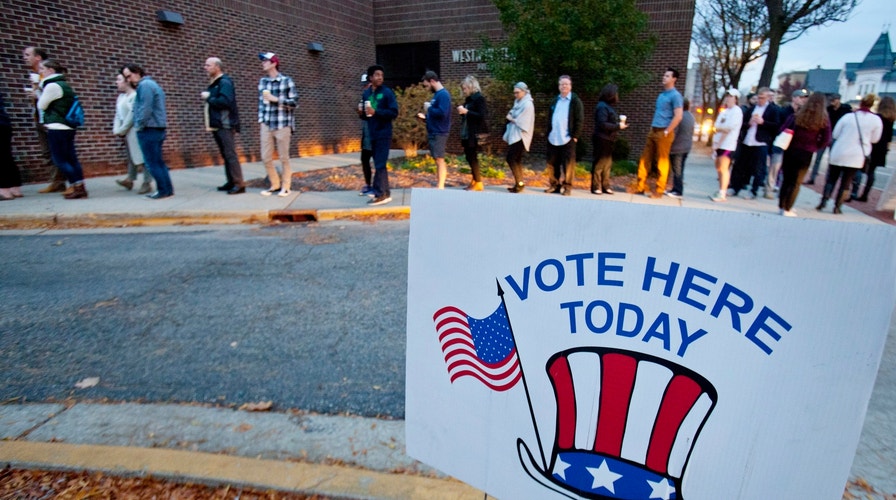Fox News Flash top headlines for July 17
Fox News Flash top headlines are here. Check out what's clicking on Foxnews.com.
Maine’s Democratic secretary of state threw out a petition aimed at stopping the use of ranked-choice voting in presidential elections, as Republicans accused him of relying on a technicality to invalidate votes.
Opponents of ranked-choice voting submitted 72,512 signatures in June, but Secretary of State Matt Dunlap’s office found 11,178 were not from valid registered voters, leaving the petition short of the 63,037 signatures it needed to get a referendum of ranked-choice voting on the ballot, according to the Press Herald.
Jason Savage, executive director of the Maine Republican Party, said at least 68,000 signatures were valid and is reviewing Dunlap’s two-page decision, which lists the reasons why signatures were invalidated. About a third of those rejected – 3,543 – were never validated by a voter registrar as a registered Maine voter, according to the decision.
After Dunlap invalidated over 11,000 signatures, the petition fell 1,733 short.
“This is a disgusting partisan attempt by a Democrat Secretary of State to suppress votes,” said Justin Clark, a Trump campaign senior adviser. “The secretary of state does not have the right to silence voters and we will not let this stand.”
Chaptered Law 539 expanded the use of ranked-choice voting to both the presidential election and congressional elections. Since no referendum will appear on the ballot, ranked-choice voting will be used in the presidential election. If the referendum were to appear on the ballot, ranked-choice would not be used until after voters weighed in.
"Let me be clear. This fight is not over," said Maine Republican Party Chair Demi Kouzounas in a statement. "It is abundantly clear that the Secretary of State used every trick in the book to throw out enough signatures through a litany of technicalities to keep this question off the ballot."
Republicans could appeal the secretary of state’s decision in court but have not decided if they will do so, according to the Press Herald.
SEN. COLLINS REFUSES TO SAY WHETHER SHE'LL VOTE FOR TRUMP, SIGNALS SHE WON'T CAMPAIGN AGAINST BIDEN
Under a ranked-choice voting system, voters select candidates in order of preference. If no candidate receives more than 50 percent of the votes, the candidate with the fewest first-choice votes is eliminated. Those that voted for the eliminated candidate would have their second-choice votes added to the tally of their second-choice candidate.
Maine is also one of two states to split its Electoral College votes by district. The winner of each district receives one vote and the winner overall receives two votes.
In 2016, Trump won the 2nd District by 10 points and received one vote and Hillary Clinton won the statewide race and the 1st District, awarding her three electoral votes.
SARAH GIDEON CRUISES TO VICTORY IN MAINE DEMOCRATIC SENATE PRIMARY
But using ranked-choice voting could hurt Trump’s prospects of winning the 2nd District again. There will be at least one third party candidate on the ballot and two Independents are trying to garner the 4,000 signatures needed to be added to the ballot in November.
If Trump beats presumptive Democratic nominee Joe Biden in the 2nd District but not by more than 50 percent, it could hurt his chance of winning that electoral vote.
CLICK HERE TO GET THE FOX NEWS APP
Maine is the only state so far to use a ranked-choice voting law, but dozens of cities use it. Voters have twice supported ranked-choice voting in Maine, approving the initial law at the ballot box in 2016 and then voting to overturn a legislative repeal in 2018.





